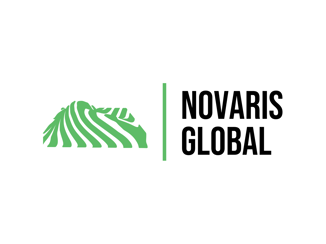Strategies to Mitigate Tariff Impacts: Navigating Trade Challenges in the Trump Era
Explore key strategies to manage tariff exposure and mitigate impacts for businesses navigating the evolving U.S. trade landscape, including FTZs, supply chain restructuring, and duty drawback programs.
Sarah Daniels | Senior Trade Consultant at Novaris Global
2/8/20252 min read


The Trump administration's aggressive trade policies, particularly in the realm of tariffs, have had a significant impact on international businesses. From Section 301 tariffs on Chinese-origin goods to Section 232 tariffs on steel and aluminum, companies have been faced with new challenges that require effective mitigation strategies. In this shifting environment, businesses need to understand the tools and approaches available to manage the consequences of these tariffs, optimize their supply chains, and remain competitive.
Key Strategies for Mitigating Tariff Impacts
Utilizing U.S. Foreign-Trade Zones (FTZs)
Foreign-Trade Zones (FTZs) are designated areas that are considered outside of U.S. customs territory for duty purposes. These zones offer significant advantages, such as duty and tax exemptions, that can benefit U.S.-based manufacturing and distribution operations. Companies can benefit from these zones by strategically placing their manufacturing or warehousing in these areas to reduce tariff exposure.
Leveraging Duty Drawback Programs
The Duty Drawback program allows businesses to receive refunds on duties paid for goods that are later exported or destroyed. For companies that are exporting products, this program can be a valuable tool to recover some of the costs incurred due to tariffs, especially when tariffs are paid on imported components that are used in final products.
Exploring Temporary Importation Under Bond (TIB)
The Temporary Importation Under Bond (TIB) program allows goods to be temporarily imported into the United States without immediate payment of duties. Goods must be re-exported, destroyed, or accounted for within a year. For businesses that need to import goods for short-term purposes, this program can significantly reduce tariff costs.
Optimizing Supply Chains and Tariff Classification
A comprehensive supply chain review and optimization strategy are essential for businesses seeking to minimize tariff costs. Companies should evaluate their suppliers and sourcing locations to ensure they are making the most cost-effective decisions in light of new tariffs. Additionally, tariff classification reviews can help companies determine if shifting product classifications could reduce duty costs, through strategies like tariff engineering.
Advocacy and Risk Management
One of the most effective ways to reduce tariff exposure is through direct advocacy efforts. Companies can work with trade associations or lobbyists to influence tariff exclusion processes and advocate for policy changes. Additionally, conducting global risk assessments and reviewing contracts with partners ensures companies are not inadvertently exposed to unforeseen tariff liabilities.
Free Trade Agreement and Non-Preferential Country of Origin Reviews
A careful assessment of a company’s products and their eligibility for Free Trade Agreements (FTAs) is crucial in reducing tariffs. Products from countries with FTAs with the U.S. can qualify for preferential treatment, which can significantly lower the tariff burden. For non-FTA situations, a thorough understanding of country-of-origin rules and the possibility of “substantial transformation” can help reduce duties and manage costs effectively.
How Novaris Global Can Help
At Novaris Global, we specialize in providing strategic consulting services to help businesses navigate the complex world of tariffs and trade policies. Our team of experts offers tailored solutions to identify opportunities for tariff mitigation, streamline supply chains, and optimize trade operations.
We offer comprehensive services, including:
Assessment and analysis of tariff exposure
Supply chain optimization and restructuring
Strategic advocacy programs
Duty drawback and Temporary Importation Under Bond (TIB) solutions
Tariff classification reviews and tariff engineering
With the changing landscape of global trade, businesses need to act quickly and strategically to stay ahead of tariff increases. Partner with Novaris Global today to develop a robust strategy that will help your company succeed despite these challenges.
Novaris Global
Helping Businesses Grow Beyond Borders
our Email
Contact US
info@novarisglobal.com
© 2025. All rights reserved.
